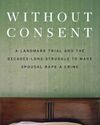Prøve GULL - Gratis
What Wikipedia Can Teach the Rest of the Internet
Reason magazine
|October 2022
Jimmy Wales talks about why his online encyclopedia works, how to improve social media, and why Section 230 isn’t the real problem with the internet.

Wikipedia, the 21-year-old “free encyclo-pedia that anyone can edit,” went from being a weird online experiment to a mainstay of the modern internet with astonishing speed. Even as the rest of the social internet seems hellbent on tearing itself apart, it has largely maintained its reputation and functionality.
As Twitter, Facebook, and YouTube have become consumed by controversy over moderation, governance, and the definition of free speech, Wikipedia quietly continues to grow in utility, trustworthiness, and comprehensiveness. There are now nearly 6.5 million articles on the English version alone, and it has held its place in the top 15 most-visited sites on the web for well over a decade.
In 2007, Reason’s Katherine Mangu-Ward profiled Wikipedia co-founder Jimmy Wales and the site’s “simple yet seemingly insane” concept. The question then: “Will traditional reference works like Encyclopedia Britannica, that great centralizer of knowledge, fall before Wikipedia the way the Soviet Union fell before the West?”
The answer is mostly yes. The site still has its share of controversy, including a squabble in July over the definition of recession that spilled over from other platforms and made headlines. But those fights have limited impact on the user experience; only the most devoted followers of online tech controversies had any idea they were happening at all. There are also external battles, including a recent conflict with the Russian government over demands that the encyclopedia censor information about the conflict in Ukraine. But Wikipedia still seems to be a signature success in the turbulent social media space.
Denne historien er fra October 2022-utgaven av Reason magazine.
Abonner på Magzter GOLD for å få tilgang til tusenvis av kuraterte premiumhistorier og over 9000 magasiner og aviser.
Allerede abonnent? Logg på
FLERE HISTORIER FRA Reason magazine
Reason magazine
AI vs. Paperwork
AT SEPTEMBER'S NATIONAL Conservatism Conference, Sen. Josh Hawley (R-Mo.) argued Al “threatens the common man's liberty” and that “only humans should advise on critical medical treatments.” Yet Al promises to enhance the human experience by reducing the price of critical services like health care.
1 mins
December 2025

Reason magazine
Q&A Katie Engelhart
THE CANADIAN PULITZER Prize-winning journalist Katie Engelhart wrote the new book The Inevitable: Dispatches on the Right to Die.
3 mins
December 2025

Reason magazine
What Happened After Greta Rideout's Husband Raped Her
WOMAN SHOWS up at the police station and says she would like to press charges for rape.
6 mins
December 2025

Reason magazine
An Alarmingly Broad View of 'Public Health'
DEFENDING COVID-19 POLICIES against legal challenges, government officials relied heavily on Jacobson v. Massachusetts, a 1905 case in which the U.S. Supreme Court upheld a smallpox vaccine mandate imposed by the Cambridge Board of Health.
3 mins
December 2025
Reason magazine
'He Never Got To Go 'Home'
INSIDE TEXAS' SECRETIVE \"CIVIL COMMITMENT\" SYSTEM
25 mins
December 2025

Reason magazine
Inside Vernor Vinge's FBI File
VERNOR VINGE-THE Hugo Award-winning science fiction author who passed away in March 2024—imagined a world where individuals, not governments, held the power.
1 mins
December 2025
Reason magazine
Will Tariffs Steal Christmas?
SANTA CLAUS MIGHT be able to evade customs checkpoints as he magically smuggles toys into the country for the good boys and girls-but everyone else doing Christmas shopping this year could run into some problems.
2 mins
December 2025

Reason magazine
THEY THOUGHT LEGAL WEED MEANT FREEDOM. THEN THE DRONES CAME.
A CALIFORNIA COUNTY TRIED TO USE DRONES TO FIND ILLEGAL MARIJUANA OPERATIONS, BUT IT PUNISHED BUILDING CODE VIOLATIONS INSTEAD.
18 mins
December 2025

Reason magazine
Thank This Klansman for Your Freedom of Speech
A TWO-BIT BIGOT'S SUPREME COURT VICTORY REVERBERATES IN CONTEMPORARY DEBATES.
20 mins
December 2025

Reason magazine
The Art of the Presidential Health Cover-Up
WHEN THE St. Petersburg Times first launched PolitiFact in 2007, its purpose was to assess the veracity of statements made by “members of Congress, the president, cabinet secretaries, lobbyists, people who testify before Congress and anyone else who speaks up in Washington.”
3 mins
December 2025
Translate
Change font size
